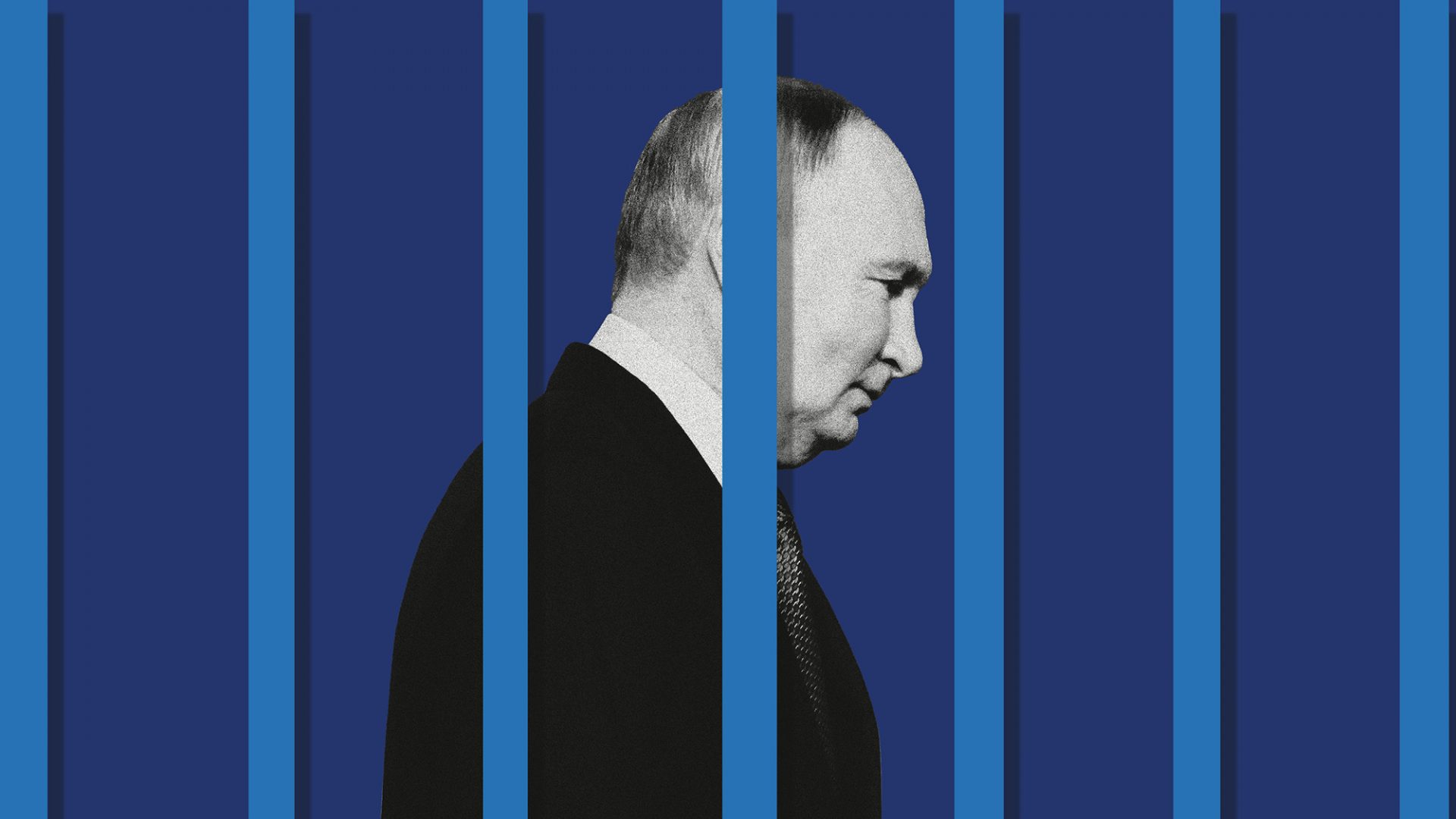“Can we rely on the law, or does just brutal force matter?” While European leaders met at a hastily organised summit in Paris, and American and Russian diplomats made their way to Saudi Arabia for controversial peace talks, that was the question posed by Ukrainian Nobel Peace Prize laureate Oleksandra Matviichuk in a speech in central London.
The human rights lawyer, who has been – in her own words – “documenting human pain” in her work tracking Russian war crimes since 2014, challenged all of those discussing the future of Ukraine to deliver a just peace. For Matviichuk, the answer to her question “is important not just for people in Ukraine, in Iran, in Syria, in Venezuela, in Nicaragua or Sudan. The answer to this question will define our common future, as we are losing freedom in the world.”
Matviichuk highlighted that whilst meaningful security guarantees to prevent future Russian aggression were essential in any negotiation, there could also be no lasting peace without justice. To deliver that, she encouraged negotiators to return to what she called “the human dimension”.
So as well as focusing on territory, red lines, troop numbers and mineral deals, she argued that negotiations should also focus on what happens now to the 19,000 children who are believed to have been deported to Russia and subjected to forcible de-Ukrainianisation. What happens too to those detained and tortured in the occupied territories of Donbas, the Ukrainian prisoners of war still held by Russia, and those physically and mentally maimed by Russian aggression? What does justice look like for all of these?
For some Ukrainians, justice cannot be achieved unless Vladimir Putin, the architect of Russian aggression, driven by his desire to be seen as the restorer of the past glories of the Russian empire, ends up behind bars. Matviichuk highlighted a recent survey that asked Ukrainians what the most disappointing resolution to the war would be: 65% replied it would be impunity for the aggressor.
During the second world war, the Allies, understanding the need for justice, convened a War Crimes Commission two years before the war ended. For the first time, aggression was criminalised as a cause of war. This became the focus of the Nuremberg trials.
In recent weeks, before Donald Trump’s intervention in a peace process that some call a sell-out, there has been progress to establish a Nuremberg-style tribunal for Ukraine. On February 4, legal experts from Ukraine, the Council of Europe, the European Commission, and individual states laid down the legal foundations for a Special Tribunal for the Crime of Aggression against Ukraine. This would have the authority to prosecute Russian political and military leaders bearing the highest responsibility for the crime of aggression.
Council of Europe secretary general Alain Berset welcomed this step forward but noted that, “the hard work is only just beginning. We will not stop until Russia is held fully accountable and justice is done.”
In normal times the Americans, key architects of Nuremberg, would back this process. But it is highly unlikely that Trump, who has refused to back ICC arrest warrants for the Russian dictator, will do so. As much as European leaders must now plan the future security of Europe without US support, they must plan for justice without America too.
Currently, the idea of Putin or any of his leaders being tried in person for their crimes of aggression sounds far-fetched; however, in the 1990s few believed top perpetrators of atrocities in the former-Yugoslavia and Rwanda would one day find themselves behind bars. The European led legal process should continue regardless.
Matviichuk, who has sat with countless victims of Russian war crimes, tells us that unpunished evil grows. War crimes being committed in Ukraine are, “the result of total impunity which Russia enjoyed for decades [across Chechnya, Georgia, Syria, Mali and the Central African Republic] … we must break this circle of impunity and demonstrate justice.”
Whilst a 2024 survey showed Ukrainian respondents prioritised prosecuting war crimes over reparations, these should also form part of negotiations. The cost of rebuilding Ukraine’s infrastructure and society should be borne by those that destroyed it.
For some, justice will be knowing the truth of what happened to their loved ones. It will be turning numbers of the dead back into names. It will be allowing the International Red Cross access to Russian-held areas and Russian prisons to uncover what has happened to the missing Ukrainian soldiers and civilians. At a minimum it should be recognition of what the Ukrainian people have been through and why.
The lessons from the 1940s that resulted in the UN Declaration of Human Rights, are being forgotten. According to Matviichuk, there is a reason for this. She says: “Current generations in well-developed democracies inherited their freedom from their parents; they have never fought for it. They have become consumers of democracy.”
In short, they take human rights for granted. By doing so they are helping authoritarian regimes change our world. For Russia and its allies, Matviichuk said, “Ukraine is not a goal but a tool” used to “break the international order… to dictate its rules to the international community.”
After Matviichuk’s talk, attendees could view an exhibition, War Diaries: Unheard Voices of Ukrainian Children exhibition, that will shortly move to Washington, DC. After returning from Saudi Arabia, those American diplomats charged with negotiating with Russia would be wise to visit it. It is hard to take human rights for granted reading these stories.
In these negotiations and others to come, we are not just deciding the future of Ukraine. We are deciding if we want to live in a world where laws matter, or whether just brutal force always wins.
These diaries document what a world looks like when the latter is victorious. The dead family members described in the diaries of young Ukrainian children cannot demand justice. It is the duty of the living to demand it on their behalf.
Andy Owen is a former UK military intelligence officer










